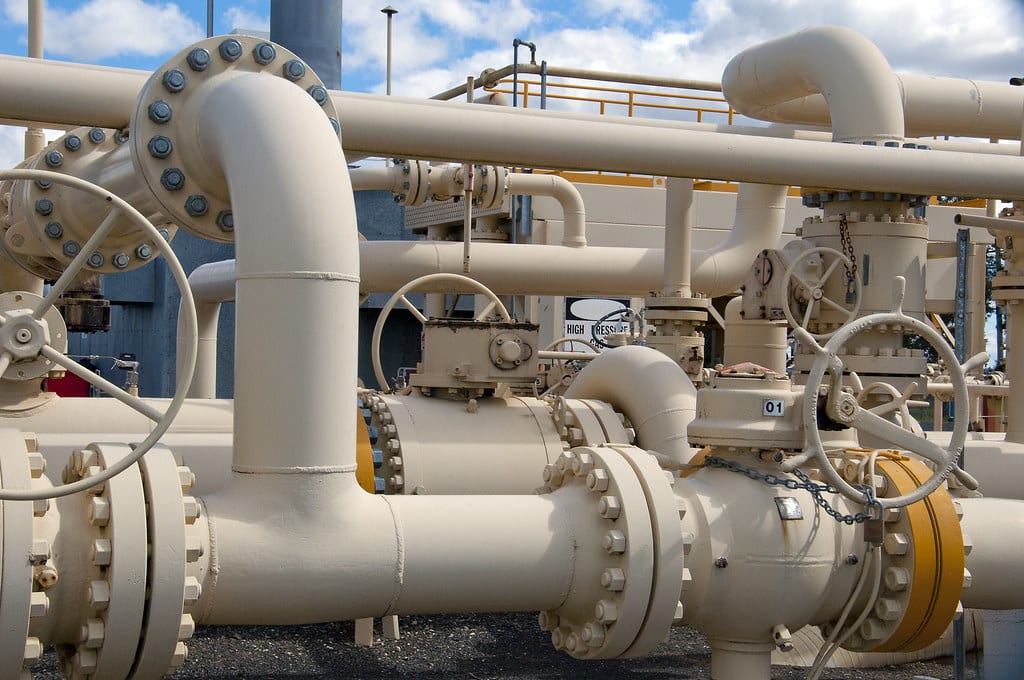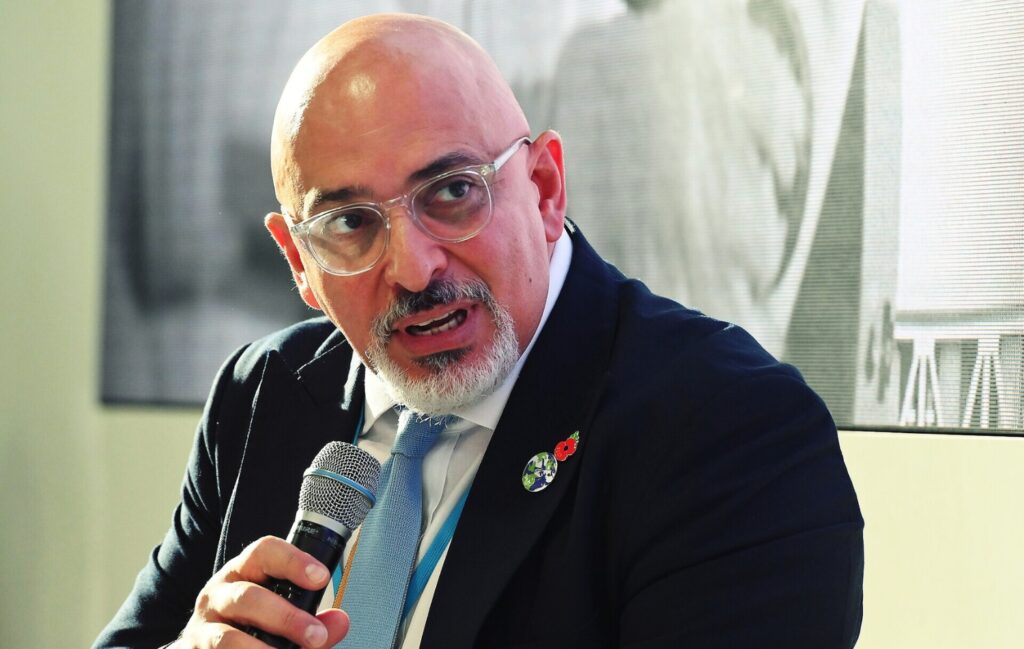Canadian pipeline company TC Energy is aiming to expand the volume of methane gas that it ships through a long distance pipeline in the Pacific Northwest, potentially locking in higher gas use despite laws in western states that chart a path away from fossil fuels in the years ahead.
TC Energy’s existing GTN pipeline carries methane gas from British Columbia down through much of the U.S. Pacific Northwest, passing through Idaho, Washington, and Oregon, and connecting to northern California.
The company’s proposed GTN Xpress project would expand the volume of gas flowing through that pipeline by roughly 150 million cubic feet per day. Such an expansion would result in the carbon pollution impact of adding more than 750,000 cars onto the road annually for the next thirty years.
Instead of building a new pipeline, TC Energy, formerly known as TransCanada, the company behind the ill-fated Keystone XL pipeline, hopes to upgrade three compressor stations along the existing GTN route, equipping the system with enhanced capacity to push through higher volumes of gas.
TC Energy says the project is needed to meet rising demand in the Northwest. In late November, the Federal Energy Regulatory Commission (FERC) released its final environmental impact statement, concluding that the project will result in “some adverse environmental impacts, but none that are considered significant.” It will make a final determination on whether or not to approve the project in February.
However, the governments of Washington, Oregon, and California all oppose the project. In August, the attorneys general of those three states filed a motion with FERC, demanding the agency reject the project. The attorneys general argue that approving the gas pipeline expansion would violate state laws and also threaten their states with worse impacts from climate change.
“There is insufficient evidence the Project serves a public necessity or the public interest. Instead, the evidence indicates that existing customers will subsidize the expansion, and the Project will primarily serve the interests of Canadian gas producers in gaining market share, not the needs of American consumers,” the motion stated.
They added that the expansion project “conflicts with state laws to reduce emissions and transition to renewable energy.”
The specifics vary, but all three West Coast states have laws and regulations that require a relatively rapid transition to 100 percent renewable energy over the next few decades. California law requires 100 percent zero-emissions electricity by 2045, and Washington has a similar timeframe. Oregon’s main investor-owned utilities have to shift to all renewable energy by 2040.
Then there are requirements that will hit the gas system that go beyond electricity, such as gas used in buildings for heating and cooking. In California, nearly 70 cities and counties have passed ordinances or building codes requiring all-electric construction. That trend is spreading in the Northwest. As recently as December 6, the city of Milwaukie, Oregon, a large suburb of Portland, approved a resolution that could result in an all-electric construction mandate by 2024. Washington has gone further, having recently passed new building standards that block gas connections in new residential construction statewide. Instead new homes will need to be equipped with electric heat pumps beginning next summer.
In addition, Oregon has state regulations that specifically require gas utilities to cut emissions in half by 2035. Experts say that any growth of the gas system poses risks to ratepayers.
The full suite of climate laws and regulations will lead to “significant declines in the region’s gas consumption,” according to a report by the consultancy Energy Futures Group, submitted as evidence with the attorneys’ general motion.
Against that backdrop, expanding the flow of gas into the Pacific Northwest does not make sense, critics say. “It is occurring at a time when these western states are committing to climate goals and creating laws to decrease reliance on fracked gas, which is part of the reason why the Attorneys General of Washington, Oregon, and California intervened,” Audrey Leonard, a staff attorney with nonprofit Columbia Riverkeeper, told DeSmog. Leonard said it was “rare” for attorneys general to intervene in a case like this.
“We’re not going to stop fighting this”
In its draft environmental impact statement, FERC estimated that the expansion project would result in an additional 3.24 million tons of CO2 annually through 2052, equivalent to adding more than a half million cars to the road each year. But its calculations understate the case, according to states’ attorneys general and others opposing the project.
FERC tallied the emissions of combusting additional gas, but ignored all the climate impacts that occur before that extra gas is burned. “Anything from extracting the gas, leaks along the pipeline, blowdowns — all of that they didn’t even bother to look at,” Leonard said.
That could leave out a lot of climate pollution. At least one peer-reviewed study from 2021 by Carleton University researchers found that oil and gas extraction sites in British Columbia are leaking 1.6 to 2.2 times more methane pollution than the Canadian government estimates.
Even after leaving those problems out of its analysis, FERC narrowed its figure even further. In its draft environmental impact statement, FERC had estimated that the project would result in 3.24 million tons of CO2 equivalent per year. But in the final report, it cut that number by a third because it said some of the gas would be heading for Canadian customers, making the climate impact “not reasonably foreseeable.” In other words, the agency ignored those emissions in its final calculation because that portion of gas wasn’t going to American consumers. By November, FERC said the impact would only be 1.9 million tons of CO2 annually.
“It isn’t just ridiculous, it’s a slap in the face to communities and tribes that have been outspoken about the real health and climate impacts that we just can’t afford right now,” Leonard said.
Opponents of the pipeline expansion project also fear that they will be stuck with higher costs. The cost of gas is rising, swept up in the global energy crunch. Rising U.S. liquefied natural gas (LNG) exports are also diverting more gas abroad, pushing up prices. Utilities are passing those costs on to ratepayers. Oregonians are seeing their bills hiked by as much as 25 percent or more.
Expanding the gas system exposes the region to more risk and volatility. “The fossil gas industry is trying to dump their excess gas, prop up their shares with their shareholders, and we are going to end up paying the price for it,” Diane Hodiak, executive director of 350 Deschutes, told DeSmog.
Activists see TC Energy’s project as a quiet attempt to force more gas into the region while avoiding the more difficult task of building an entirely new pipeline.
“It hasn’t been easy to get fossil fuel infrastructure through in the Northwest. There’s been quite a list now of projects that have been stopped,” Maig Tinnin, a coordinator with Rogue Climate, a climate justice organization in southern Oregon, told DeSmog. Rogue Climate played a vital role in the successful defeat of the proposed Jordan Cove LNG export project, which would have resulted in a long-distance pipeline crossing southern Oregon and an export terminal on the coast.
“Increasing the capacity of an existing pipeline — the process is easier,” Tinnin said.
TC Energy’s strategy to merely upgrade compressor stations leaves project opponents with fewer tools at their disposal. “There’s less state and local permits that they have to deal with. The state of Oregon doesn’t have any permits in the game,” Tinnin said. “There are fewer leverage points, and the timeline is quick. It’s pretty much all at FERC.”
In a public comment, Rogue Climate documented 15 other similar “Xpress” project approvals by FERC, allowing for upgrades of existing systems that amount to an expansion. TC Energy was an owner or an investor in 14 of those.
Tinnin added that allowing the gas system to continue to expand would impair the Northwest’s attempts to transition to clean energy. “We are doing all this work throughout the Northwest to make this transition, and these companies are just going to come in and just increase the amount of gas flowing through the region,” Tinnin said.
TC Energy did not respond to a request for comment.
FERC’s final environmental impact statement suggests an inclination to approve the project, and a decision is expected in February. But with the shift to cleaner energy clearly underway — and that trend codified very clearly in state laws — critics hope that FERC will reject the project.
“It’s not going to be ignored. We’re not going to stop fighting this,” Leonard said.
Subscribe to our newsletter
Stay up to date with DeSmog news and alerts






